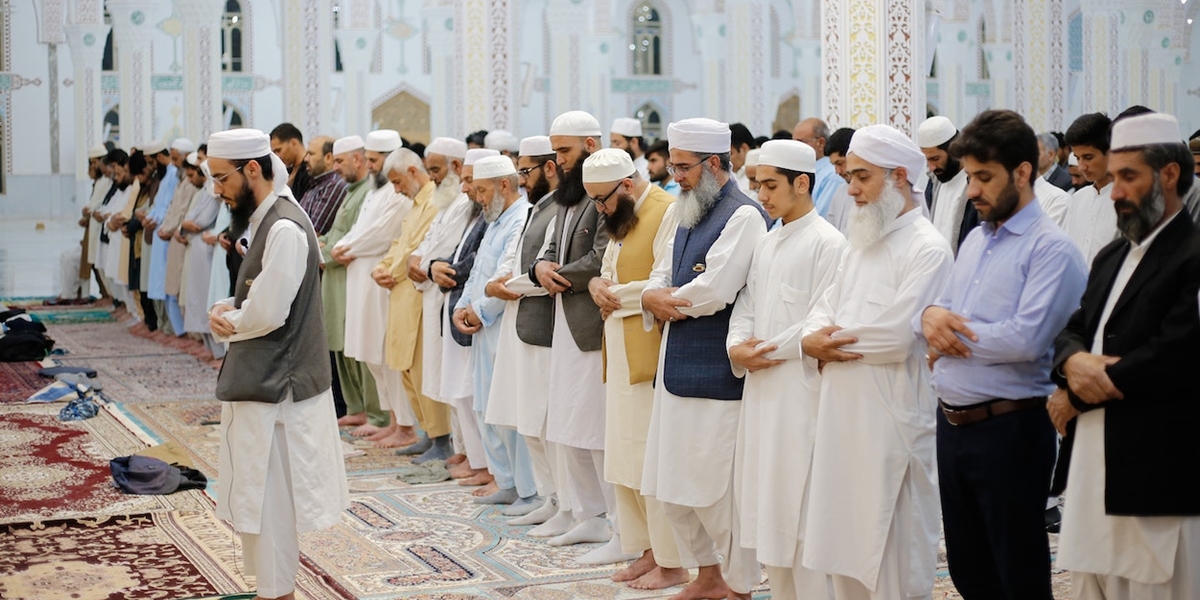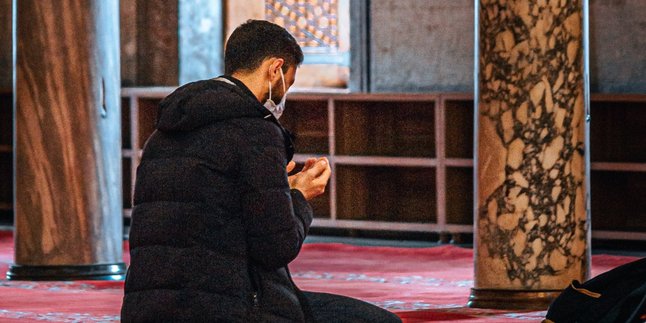Kapanlagi.com - The question of how many pillars of prayer often arises among Muslims who strive to ensure that their mandatory worship is performed perfectly. Understanding the pillars of prayer is not just knowledge, but a necessity, because the pillars are parts that cannot be omitted in the performance of prayer.
If one of the pillars is missed, whether intentionally or not, the prayer becomes invalid and must be repeated. In exploring the number of pillars of prayer, we need to be aware that scholars from various schools of thought have slightly different views.
In Indonesia, the widely followed Shafi'i school states that there are 13 mandatory pillars of prayer that must be fulfilled. Meanwhile, other schools such as Hanafi, Maliki, and Hambali have their own interpretations that result in a varying number of pillars, according to their understanding of the Qur'an and Hadith.
Understanding how many pillars of prayer is very important for every Muslim, as prayer is the pillar of religion and is the first act of worship that will be accounted for in the hereafter. Allah SWT emphasizes the obligation of prayer in the Qur'an, stressing that prayer is a duty that has been appointed at specific times for the believers.
To provide a deeper understanding, here we present a complete summary from various trusted sources. Check out the explanation in this article!
1. Understanding the Pillars of Prayer and Its Obligations in Islam
The pillars of prayer are essential elements that must be performed with full perfection in every prayer, because if one pillar is missed or intentionally left out, that prayer is declared invalid.
This is the essence of the worship practiced by Muslims around the world, where the obligation of prayer is emphasized in the words of Allah SWT in the Qur'an, such as in Surah An-Nisa verse 103 which states that prayer is an obligation that has been set at specific times for the believers.
Furthermore, in Surah Al-Baqarah verse 110, Allah reminds us again to establish prayer and give zakat, and promises rewards for every good deed we do.
The Prophet Muhammad SAW also emphasized the importance of prayer in a hadith narrated by Abu Dawood, which states that the key to prayer is purification, with takbir as the introduction and salam as the closing.
Interestingly, although there are four major schools of thought in Islam that have different views on the number of pillars of prayer, they all adhere to the Qur'an and Hadith, demonstrating diversity within the unity of this worship.
2. The Pillars of Prayer According to the Shafi'i School
In Indonesia, the majority of Muslims follow the Shafi'i school, which establishes 13 pillars of prayer, among which are intention, takbiratul ihram, standing for those who are able, and ending with salam.
In particular, reciting Al-Fatihah is a very important pillar, as the Prophet Muhammad (SAW) emphasized that prayer without this recitation is invalid.
Meanwhile, the Maliki school also establishes 13 similar pillars, but emphasizes intention as the first, depicting the will of the heart to attain Allah's pleasure.
In contrast, the Hanbali school adds the pillar of tuma'ninah, which is tranquility in the movements of prayer, and requires the recitation of tasbih during bowing.
On the other hand, the Hanafi school has a unique view with only 6 pillars, where some movements are considered obligatory but not pillars, so if missed, they can be compensated with sujud sahwi.
This diversity shows how rich and colorful the worship traditions in Islam are.
3. Detailed Explanation of the 13 Pillars of Prayer in the Shafi'i School
Here are the 13 pillars of prayer according to the Shafi'i school:
1. Intention: The will of the heart to perform the prayer with the aim of seeking Allah's pleasure.
2. Takbiratul Ihram: The opening movement of the prayer that marks the beginning of worship and prohibits anything that could invalidate it.
3. Standing: For those who are able, standing is mandatory in obligatory prayers.
4. Reciting Al-Fatihah: Reciting Surah Al-Fatihah in every unit of prayer is an obligation that cannot be omitted.
5. Bowing: Performing bowing correctly as a sign of reverence to Allah.
6. I'tidal: Standing upright after bowing as a form of respect.
7. Prostration: Performing prostration with humility, placing the forehead, nose, both palms, knees, and toes on the ground.
8. Sitting between the two prostrations: Taking a moment to sit briefly between the two prostrations as part of the pillars.
9. Second prostration: Performing the second prostration after sitting between the two prostrations.
10. Tashahhud: Reciting the tashahhud in a sitting position after the second unit of prayer and beyond.
11. Salam: Saying the salam as a closing of the prayer.
12. Sequence: Performing the pillars of prayer in the correct order.
13. Khushu': Performing the prayer with full attention and submission to Allah.
By understanding and practicing these pillars, we can delve into the true meaning of prayer and draw closer to Allah.
4. Ease (Rukhsah) in the Implementation of the Pillars of Prayer
Islam is a religion rich in mercy and ease, where Allah SWT provides relief for His followers in performing the pillars of prayer, especially in certain conditions.
For example, for those who are unable to stand, the Prophet Muhammad SAW taught to pray while sitting, or even lying down if necessary. Not only that, in reciting Al-Fatihah, those who have not memorized it are allowed to read other verses or dhikr as a substitute.
Ease also applies during bowing and prostration if one cannot perform them perfectly; it is sufficient to make gestures according to one's ability.
All of this is a manifestation of Allah's love, which emphasizes that He does not burden a soul except according to its capacity.
By understanding the pillars of prayer, every Muslim can perform their worship correctly, without feeling pressured by existing limitations.
(kpl/rao)
Disclaimer: This translation from Bahasa Indonesia to English has been generated by Artificial Intelligence.












